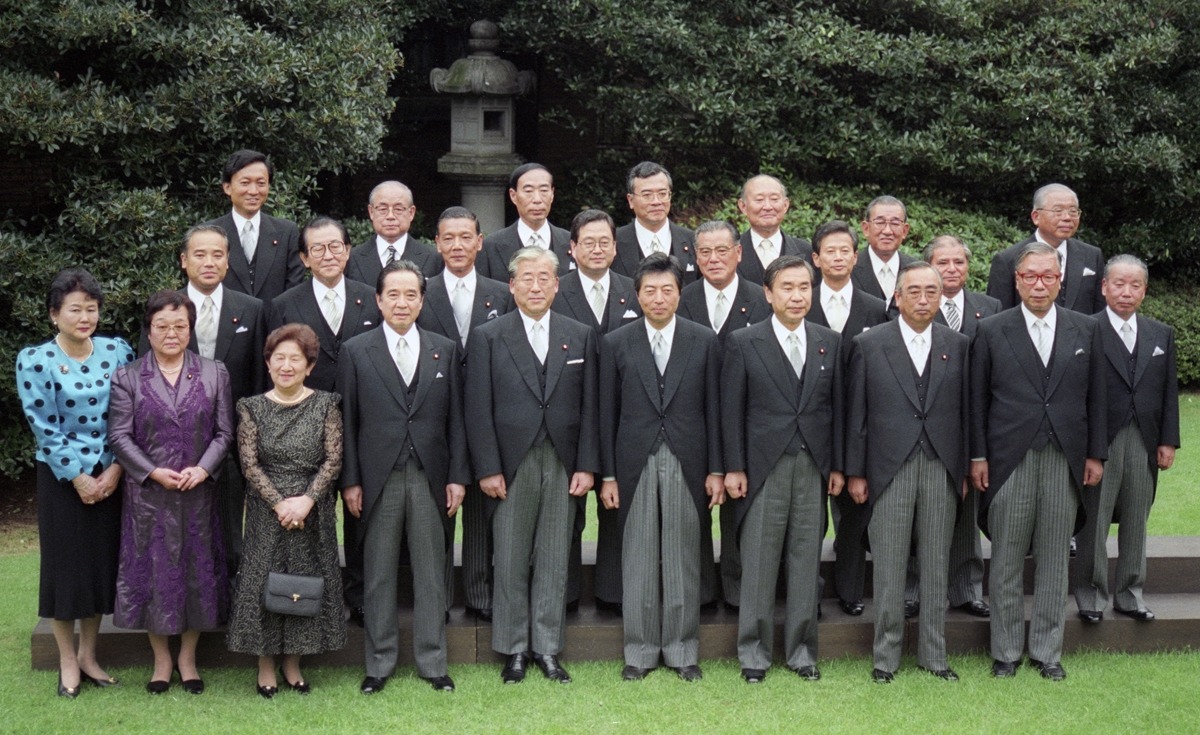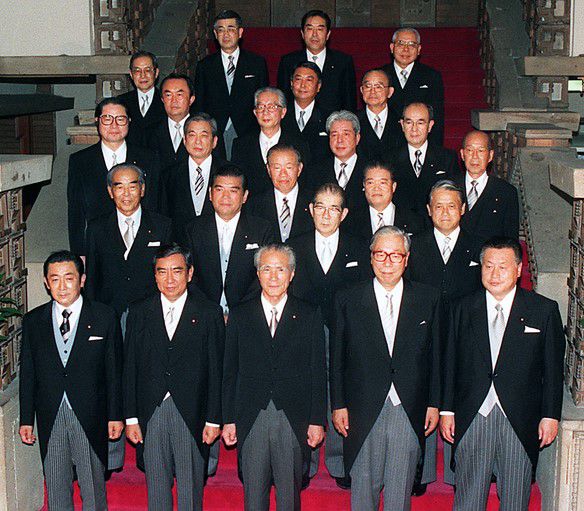Unified Only By “Anti-LDP”
When it comes to post-war Japanese politics, one party stands out in its duration of staying in power: the Liberal Democratic Party (LDP). Previously, we examined the main reasons behind the LDP’s dominance, but it is worth further exploring why non-LDP administrations have failed.

Just to reiterate, the LDP is no dictatorship and have been defeated in general elections. Corruption has always plagued the LDP to this day, and there is a underlying desire for an alternative party capable enough to govern the country.
Scandals regarding bribery has periodically surfaced with the public being disgusted by such corrupt nature. Such disappointment was especially conspicuous in the early 1990s, eventually leading to the LDP’s first major downfall in 1993.
After a historic election, a new coalition government composed of eight parties/factions, including the Socialists, was formed to breakaway from the “old” LDP politics.
 The Hosokawa Cabinet (photo: Kyodo News)
The Hosokawa Cabinet (photo: Kyodo News)
The new coalition initially exhibited a high approval rate from the constituents who held high expectations of political reform aimed at eradicating corruption.
However, despite making some progress through major electoral reforms, the coalition quickly fell victim to internal disputes. The result was a short-lived non-LDP administration that disintegrated in less than nine months.
On account of “Anti-LDP” being the only unifying factor for the eight party coalition, disagreement was inevitable once this objective had been achieved.
Once they managed to snatch power from the LDP, emphasis on cooperation started drifting away to pursue their respective interests. Lack of coordination was became evident when the Prime Minister (Morihiro Hosokawa) suddenly announced a new tax plan without consulting his allies.
This abrupt taxation was later withdrawn, but it was obvious to anyone’s eye that unity and coordination was absent from the new government.
Being the largest party within the coalition, it was normally the Socialists’ job to balance the differing interests to avoid dissolution, but they proved incapable in doing so.
In a more pragmatic sense, the Socialists, who had enjoyed a lukewarm status in the opposition seat for such a long time, simply did not possess the capability or necessary experience to run a government.
After all, it was their first time in office and managing the interests of eight parties was just too much for a freshman.
Socialists Failed The Test
The impression of “Socialists = Incapable” was reinforced when the Socialist Prime Minister, Tomiichi Murayama, failed to deliver a quick response during the 1995 Great Hanshin Earthquake.
This administration, which practically succeeded the disintegrating eight-party regime, was an odd coalition between the Socialists and LDP with the latter shrewdly using the former to regain some power.
 Socialist /LDP Cabinet
Socialist /LDP Cabinet
Nonetheless, the Socialist Prime Minister’s late decision to mobilize the Self Defense Forces (SDF) for disaster relief sparked wide criticism and this led to people questioning the Socialists’ intention.
You see, the Socialist Party had long opposed the existence of the SDF as “unconstitutional” in reference to Article 9. This political stance was reversed when the Socialist-LDP coalition was formed, but quite a few accused the Socialists’ “military allergy” as a driving factor for the hesitant use of the SDF in disaster relief.
Whatever the case may be, the sluggish response along with his abrupt resignation cemented the image of being irresponsible and incompetent.
Following this debacle, the LDP was once more voted back in power and the ditched Socialists would never regain their influence.
Perhaps it is cruel to harshly criticize the parties who had no previous experience in governing, but as expectation towards such non-LDP government was high, so were the stakes of failure.
This heavy sense of disappointment would continue to linger and it would take a decade for the constituents to entrust their vote to another non-LDP party.




















Comments